Sheik Nasruddin and His Donkey
A Story Told by Gurumayi Chidvilasananda
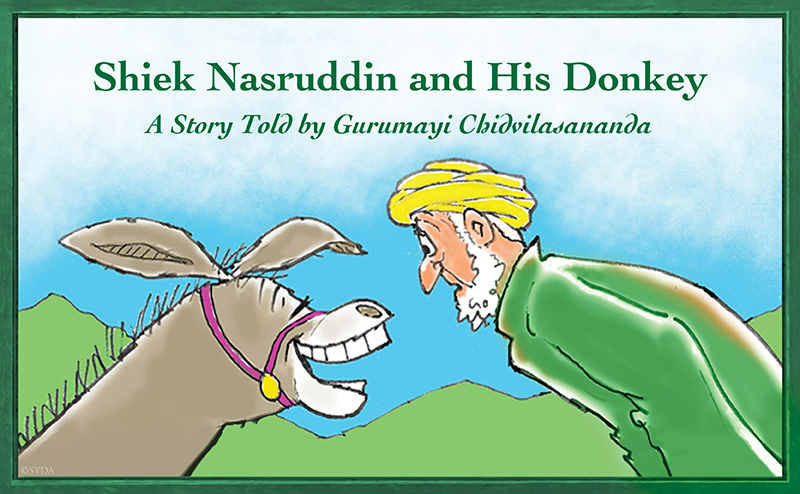
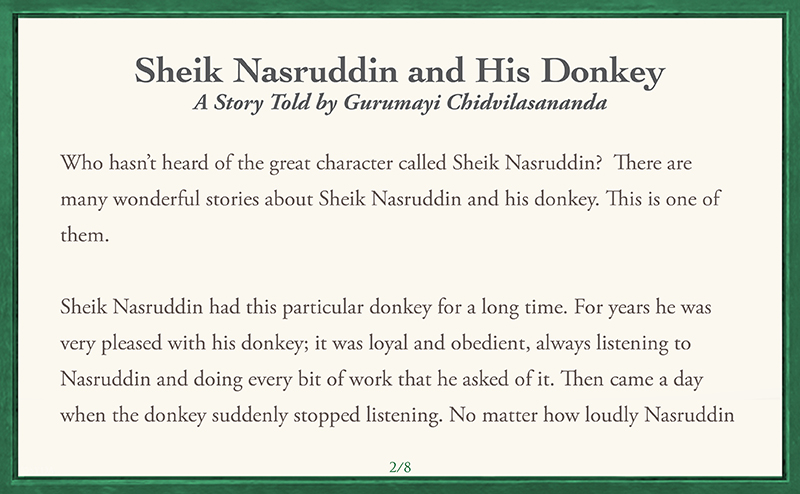
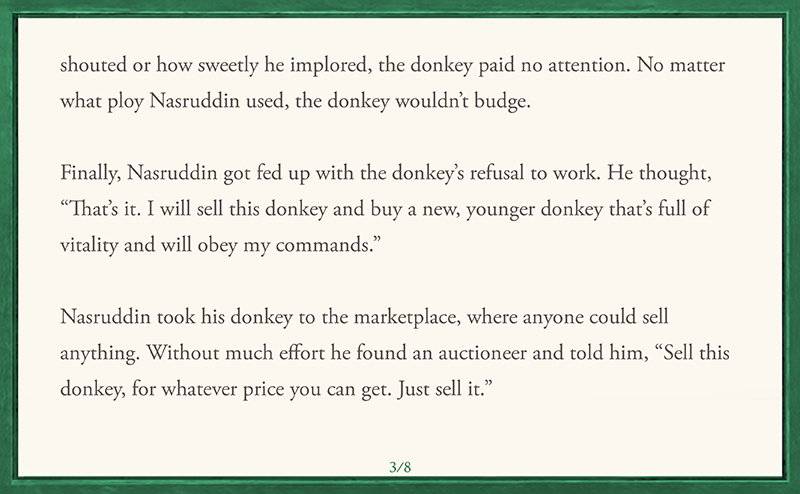
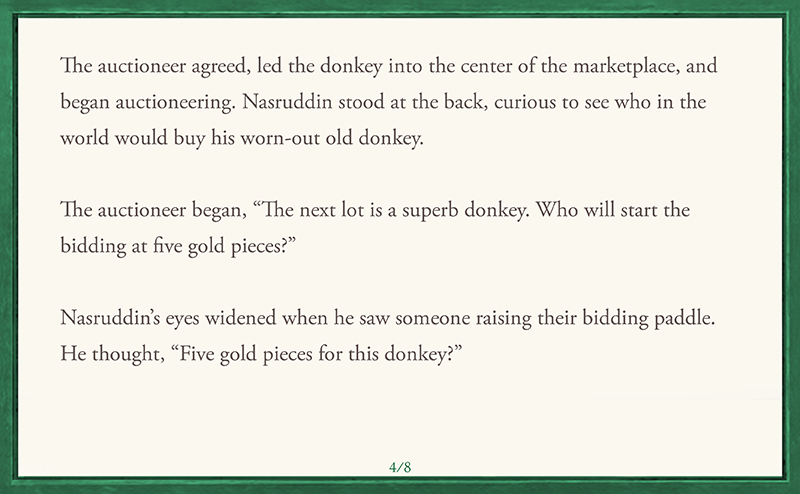
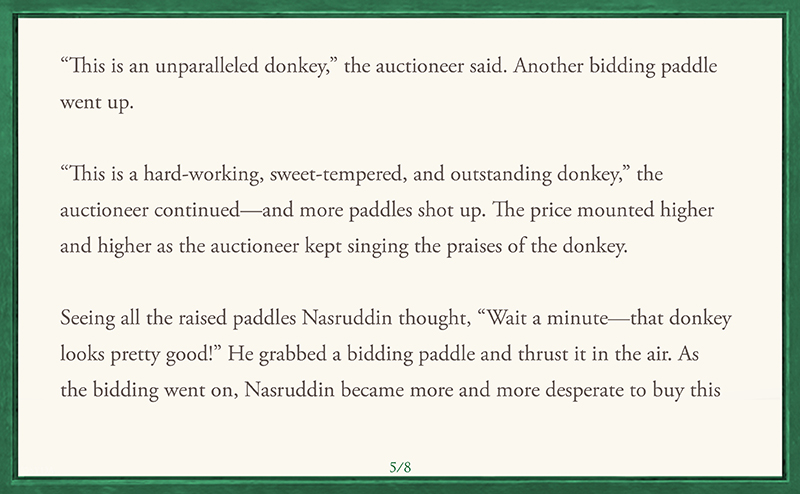
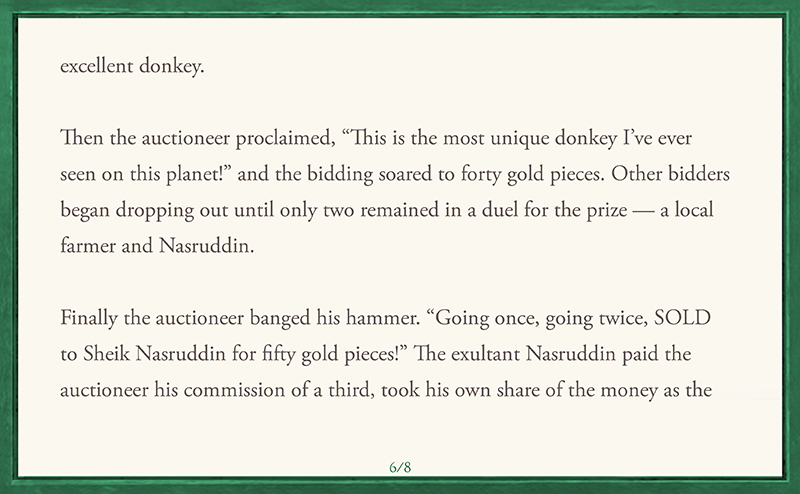
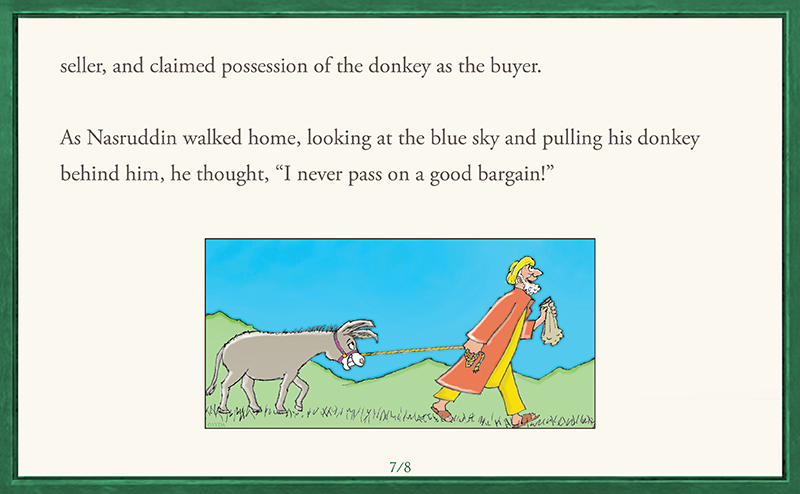
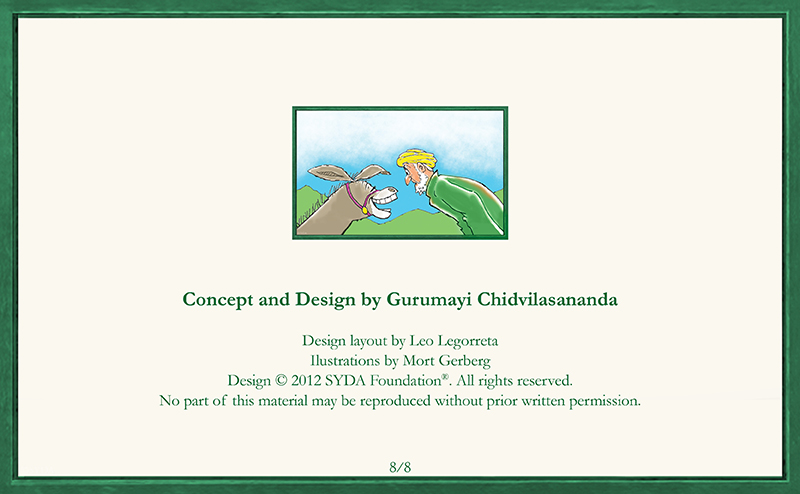
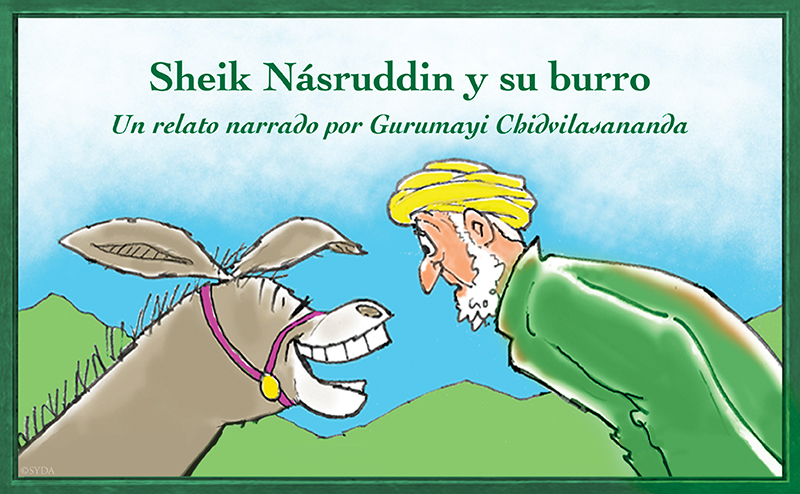
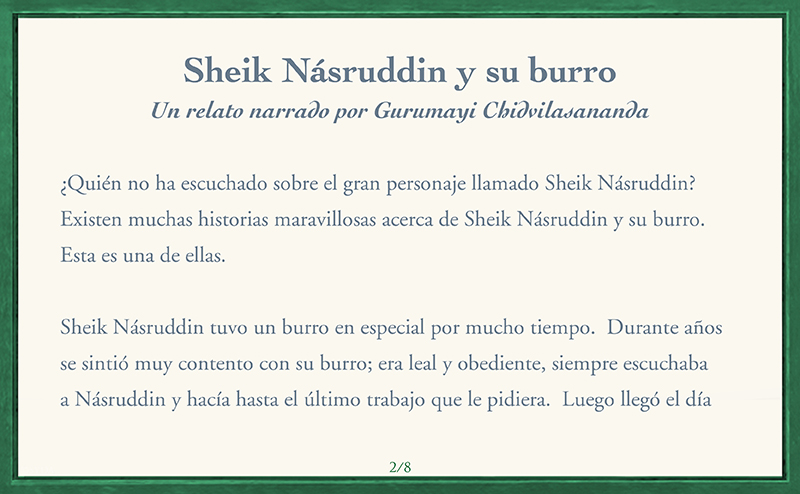
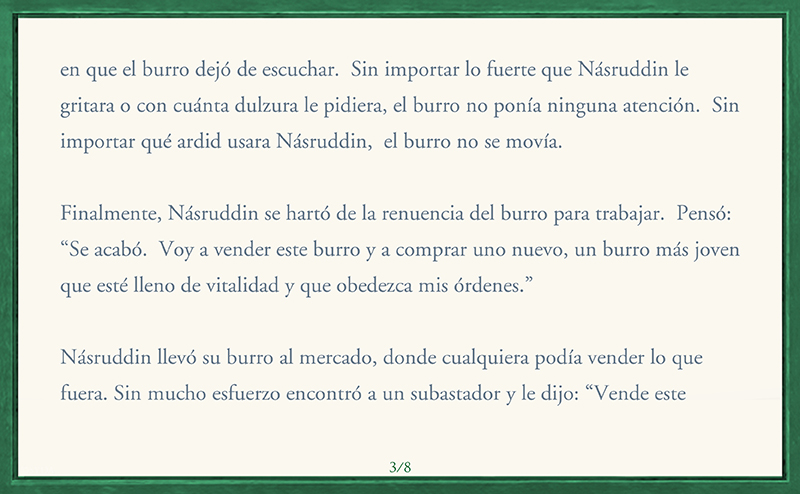
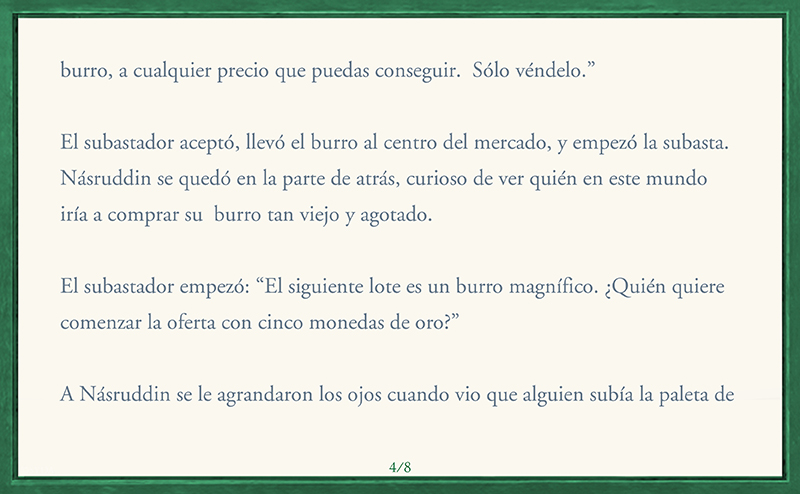
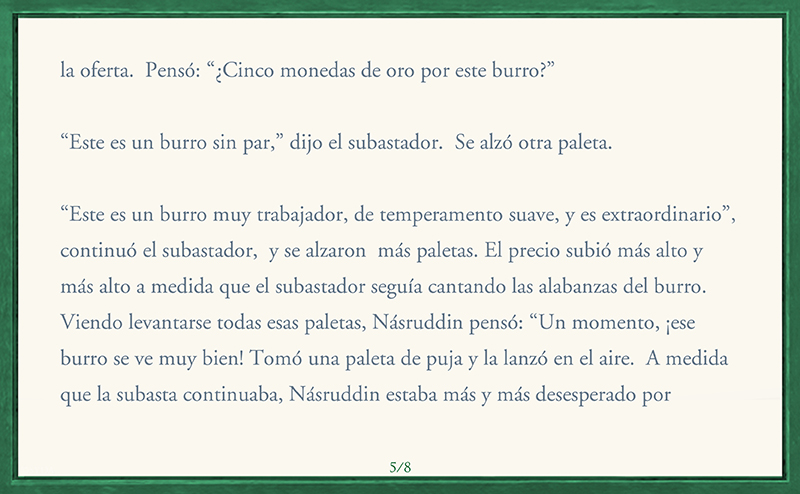
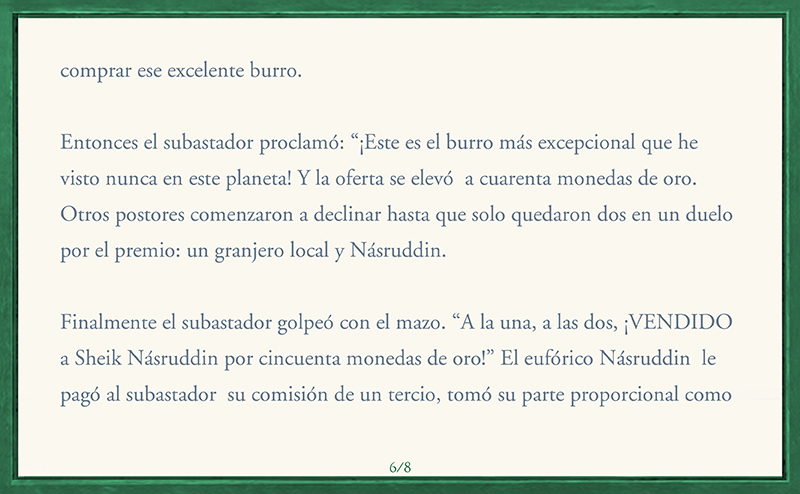
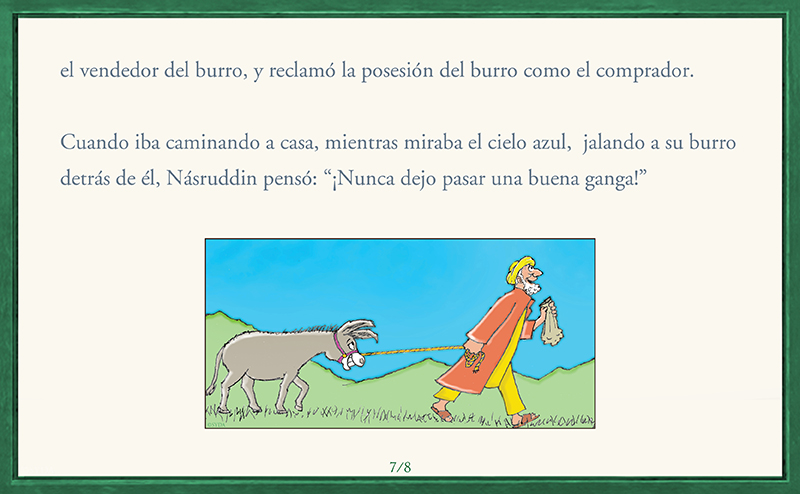
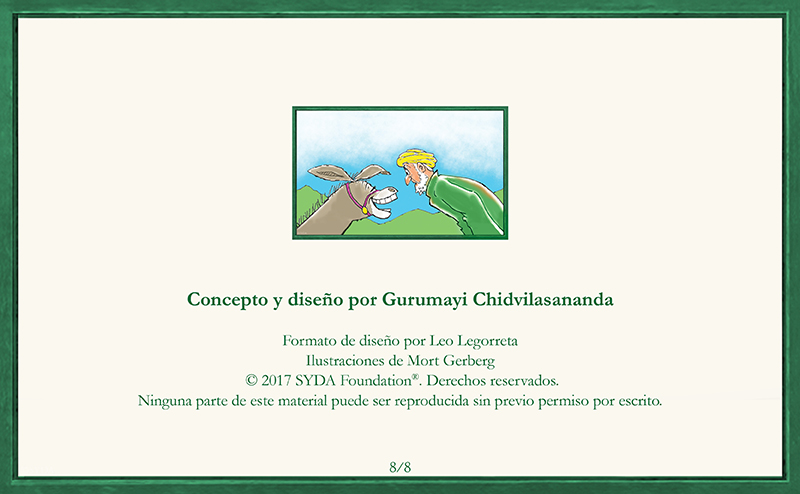
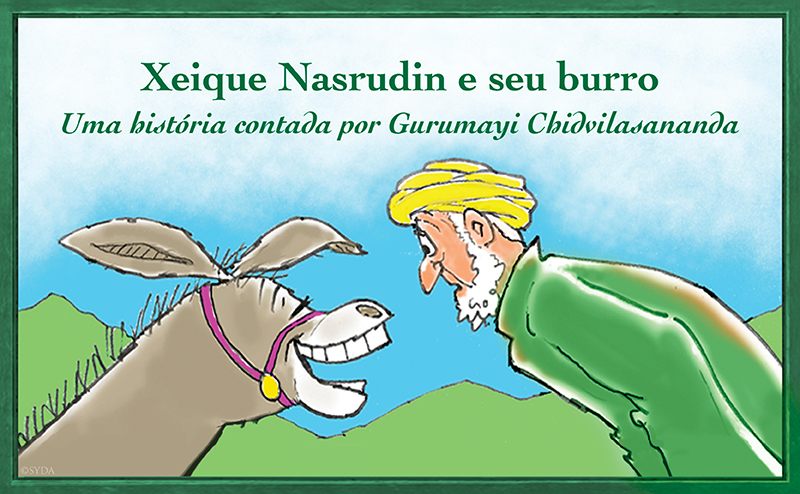
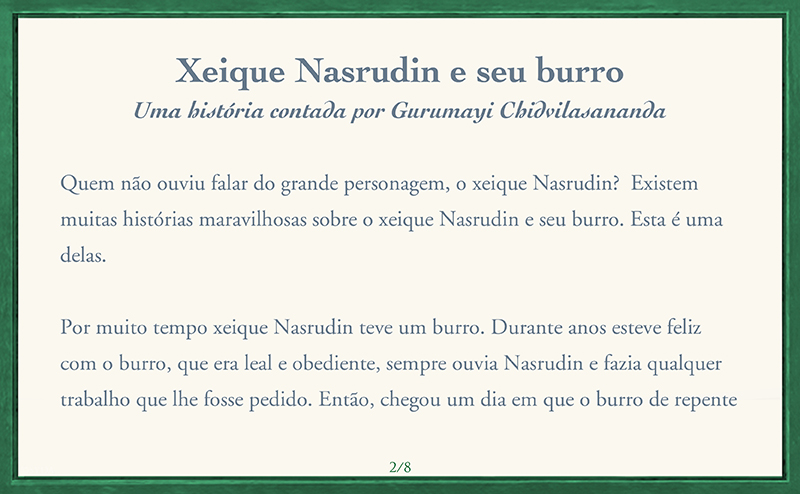
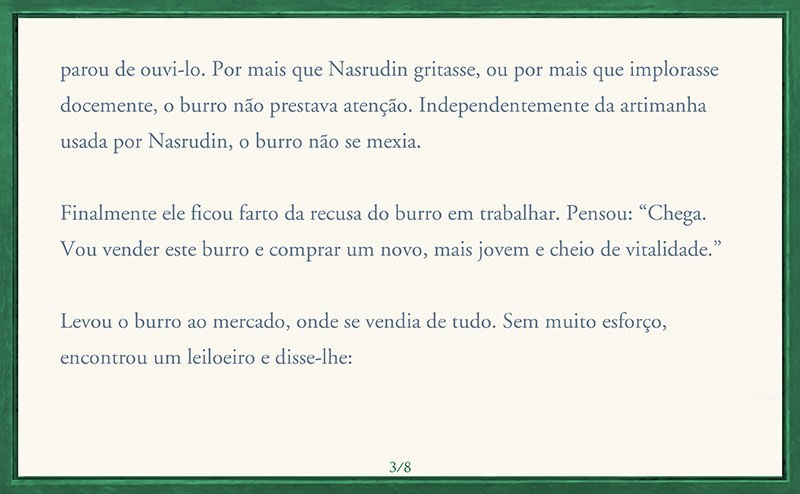
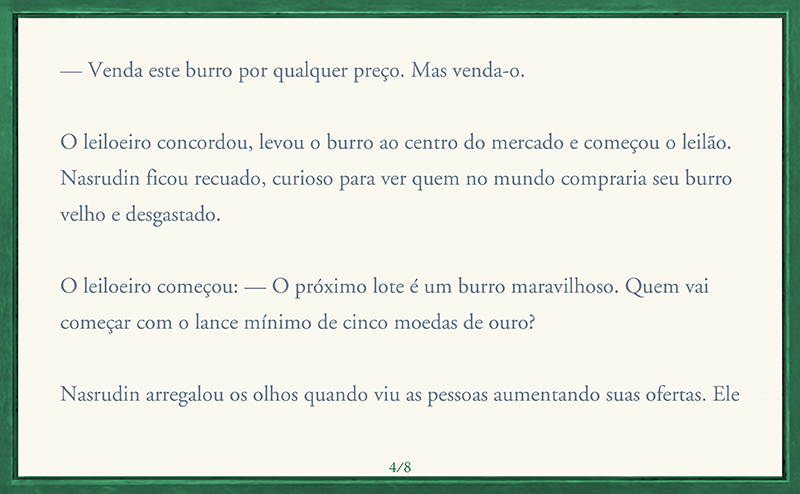
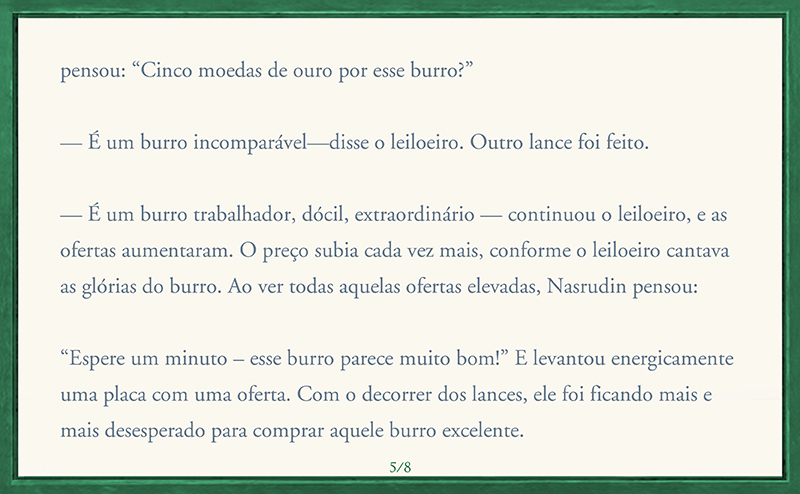
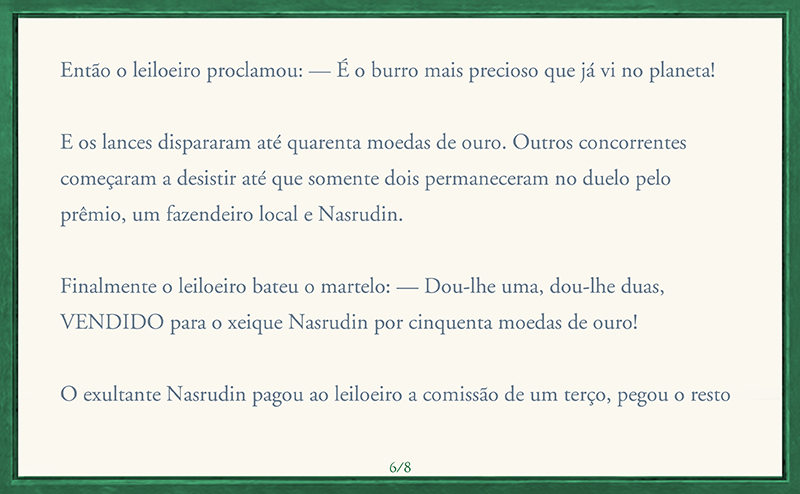
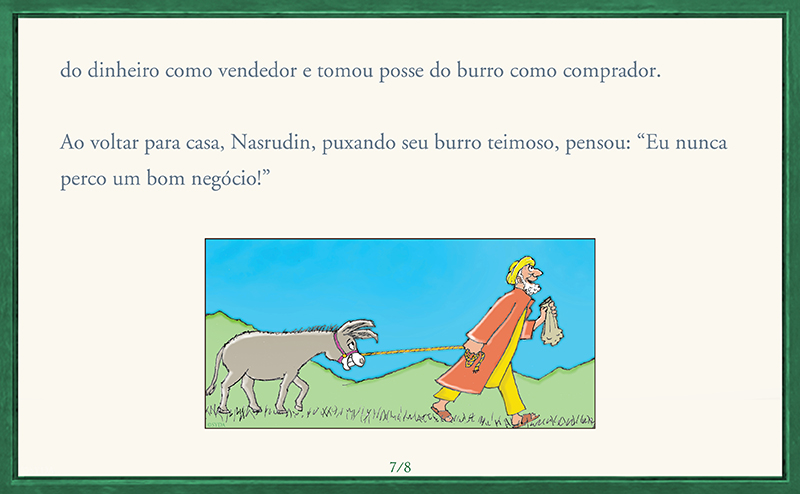
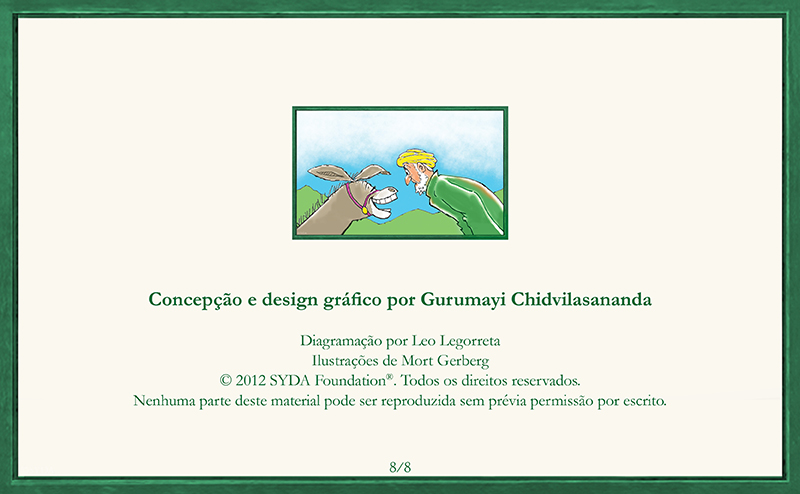
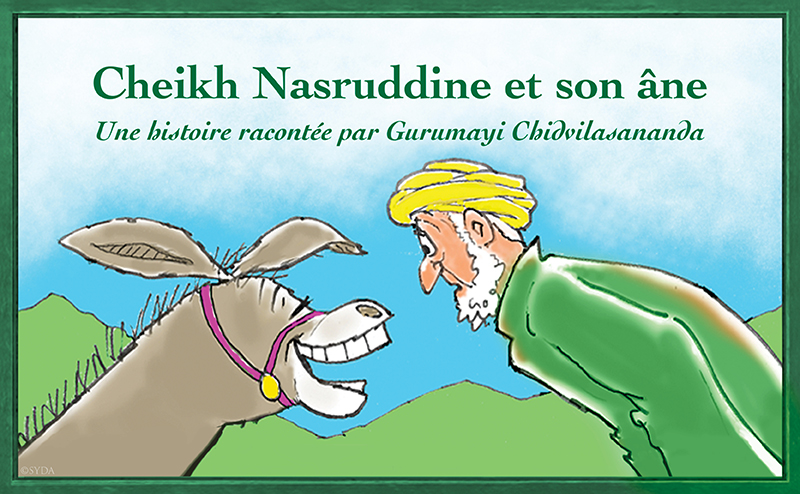
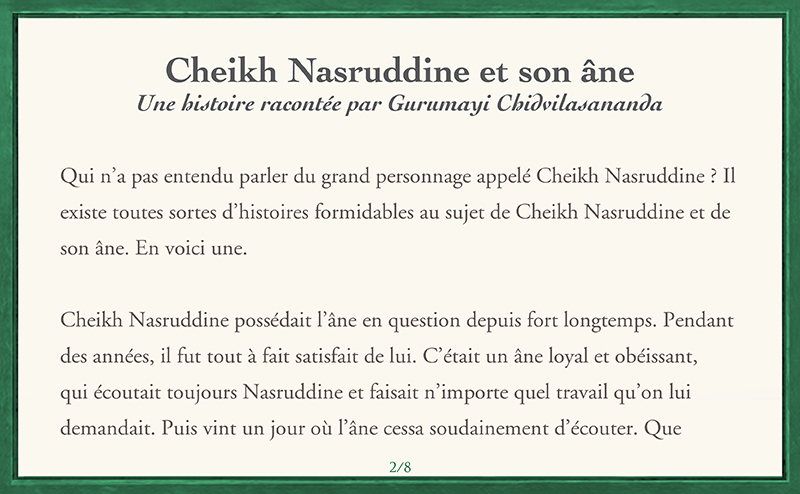
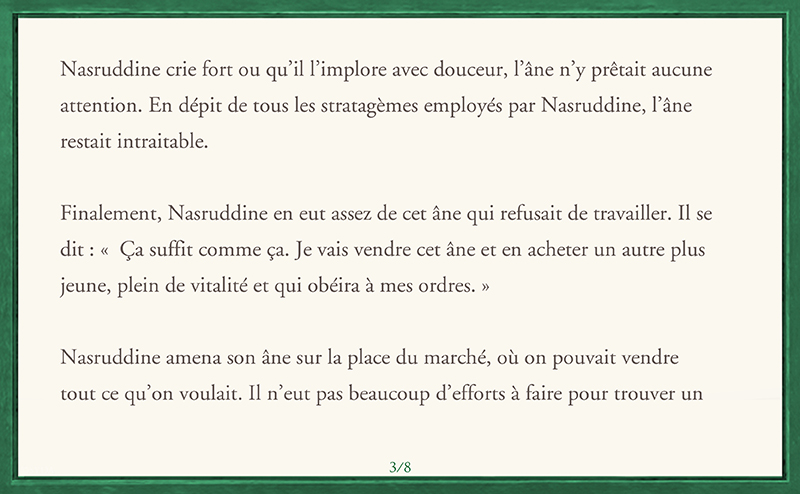
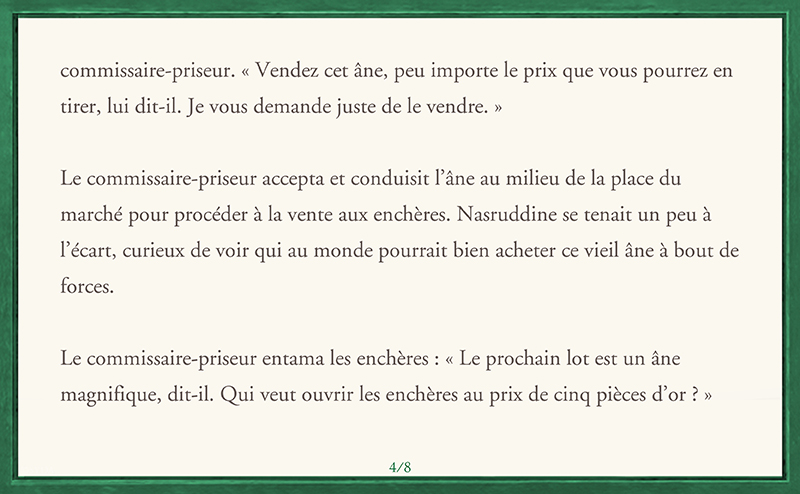
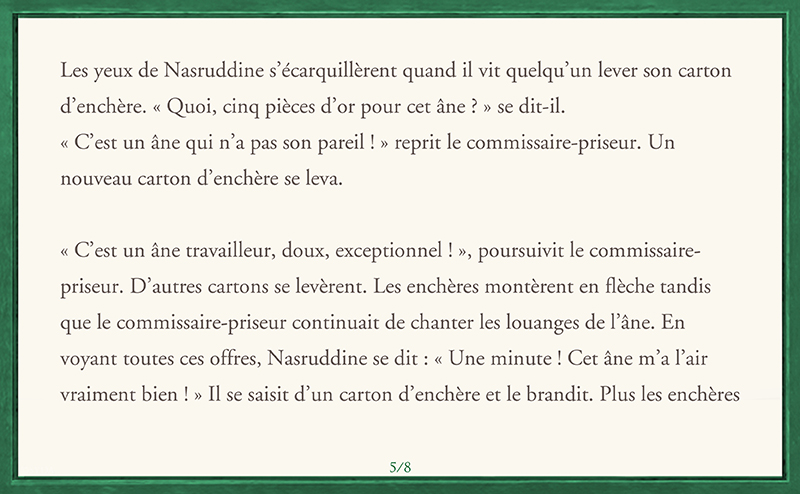
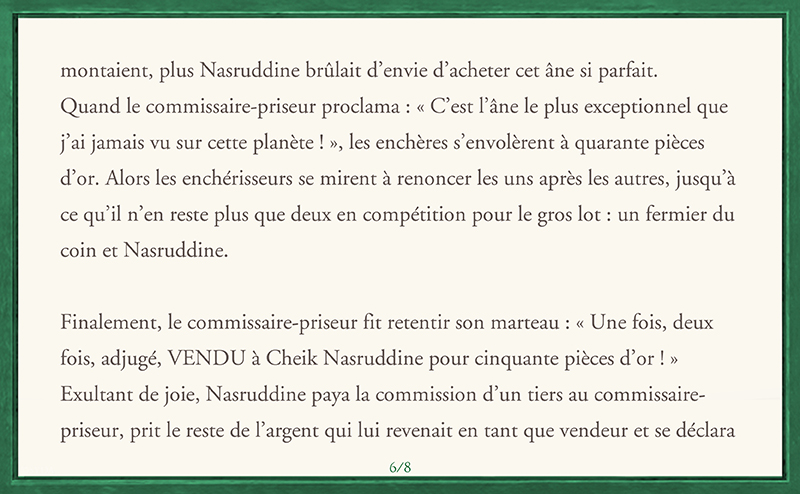
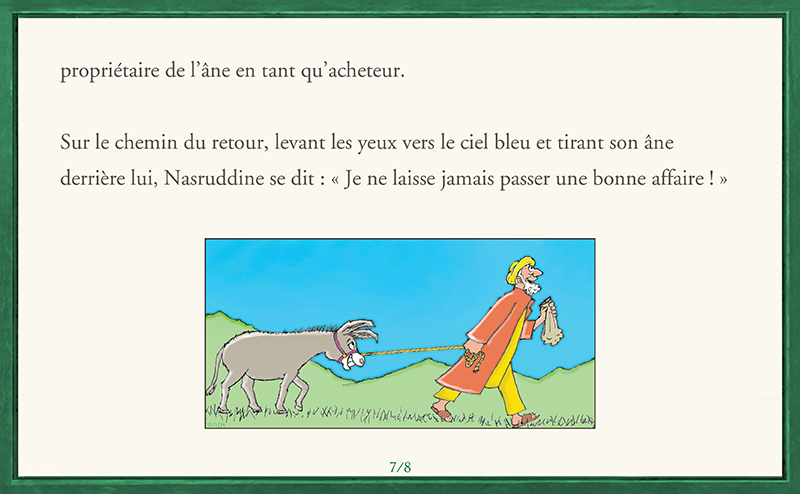
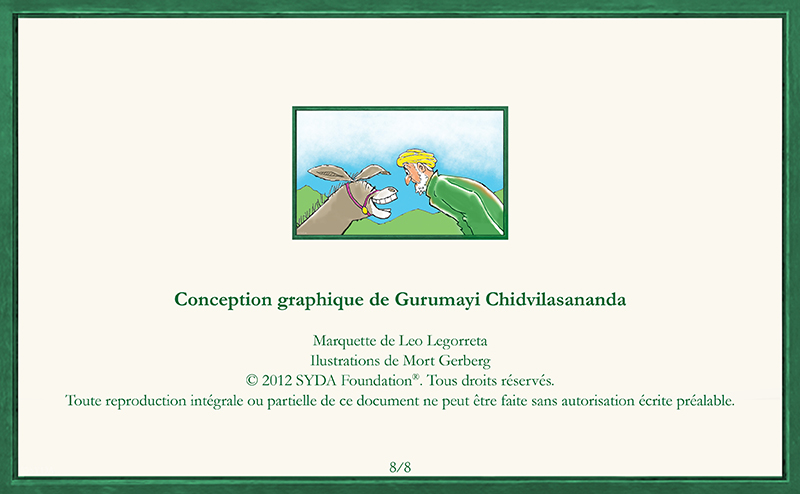
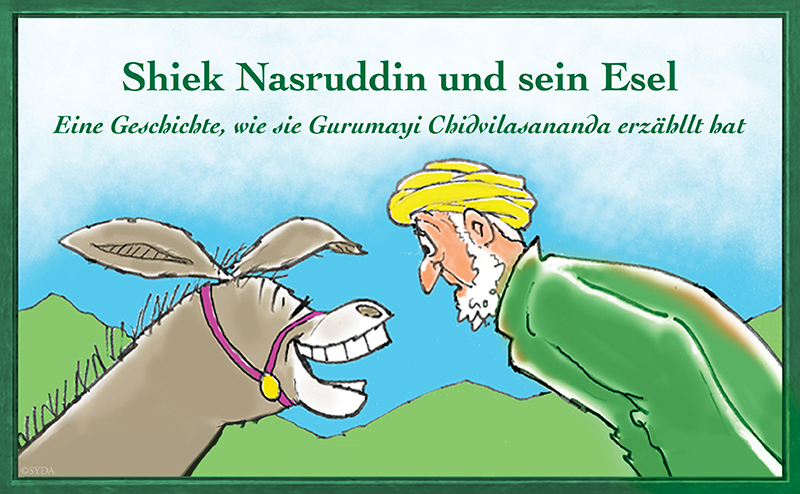
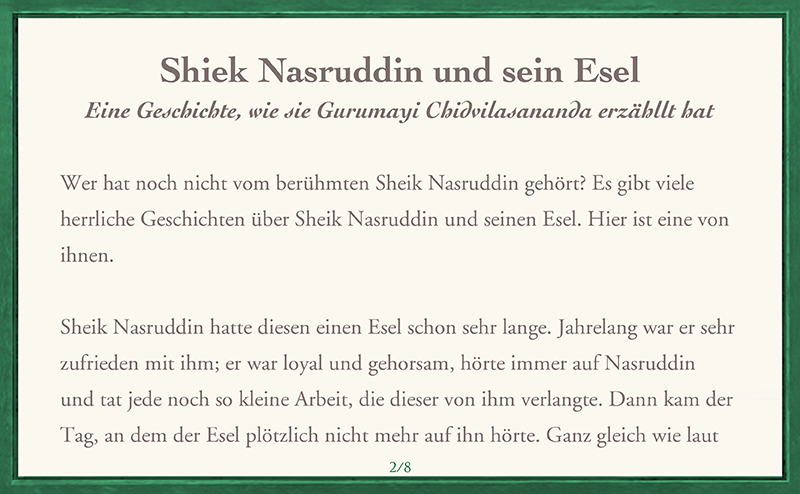
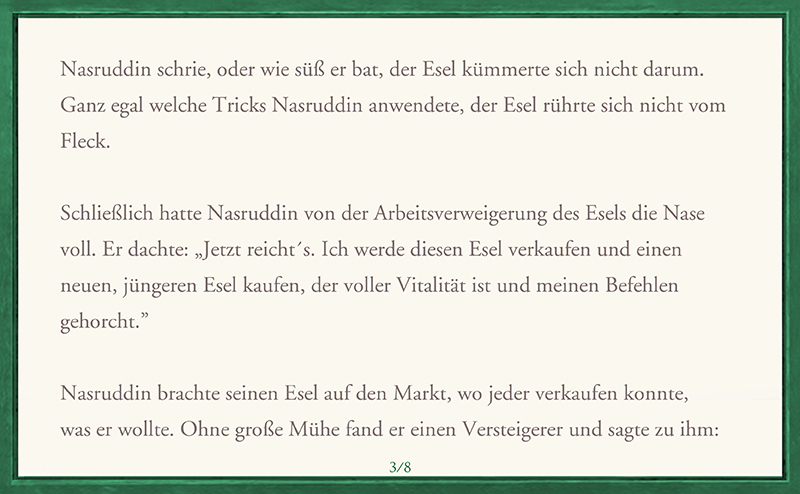
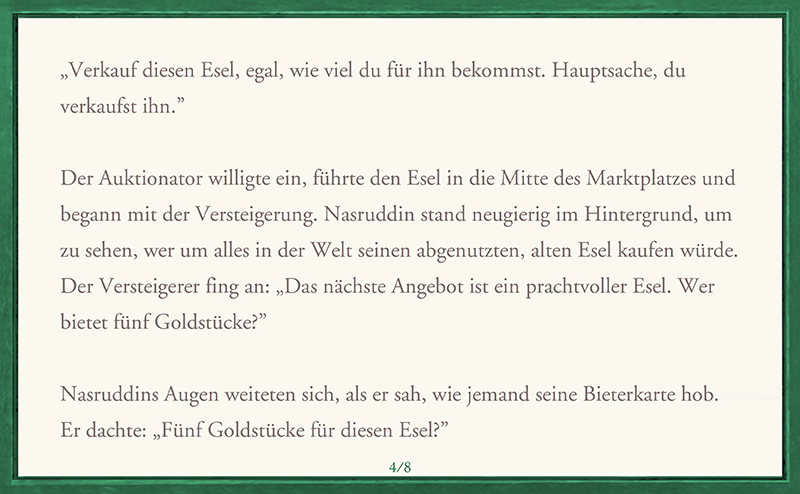
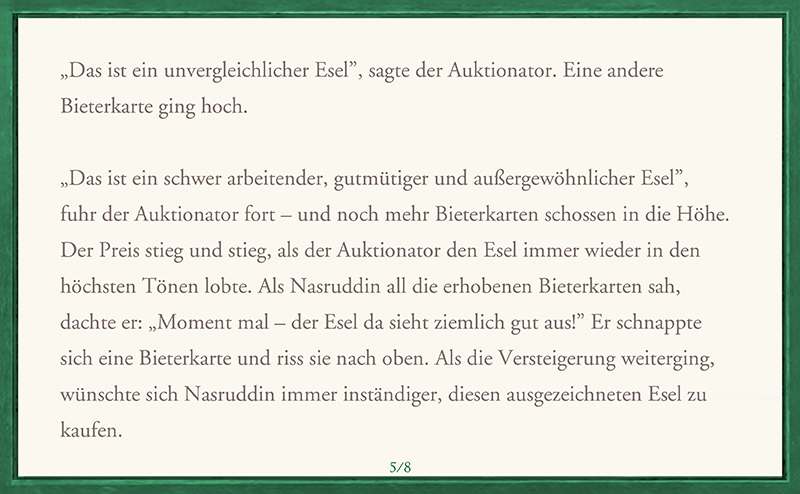
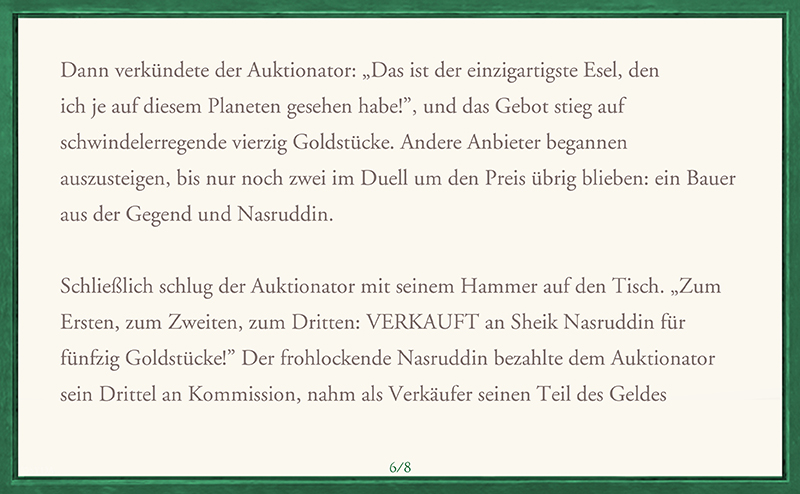
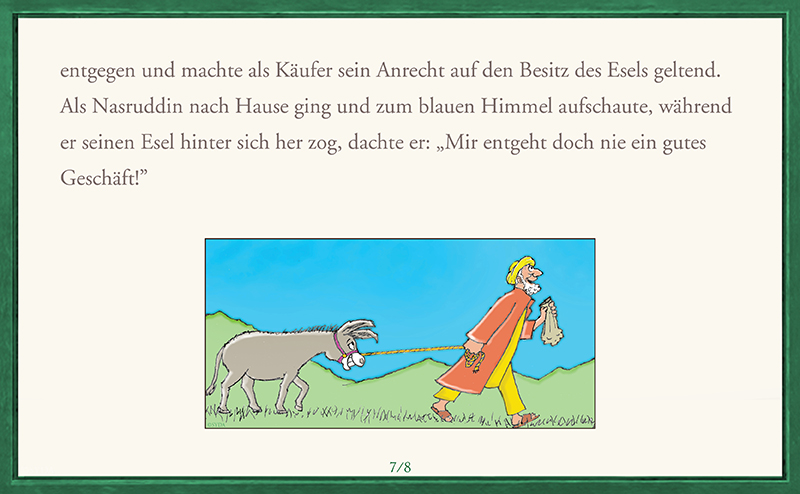
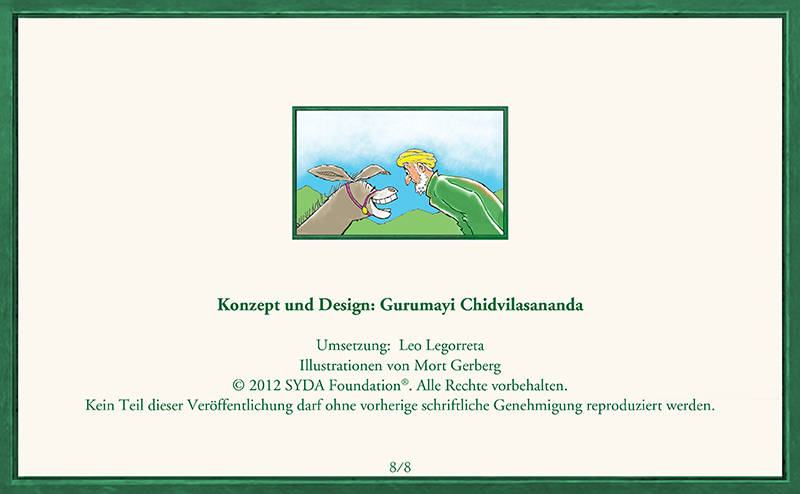
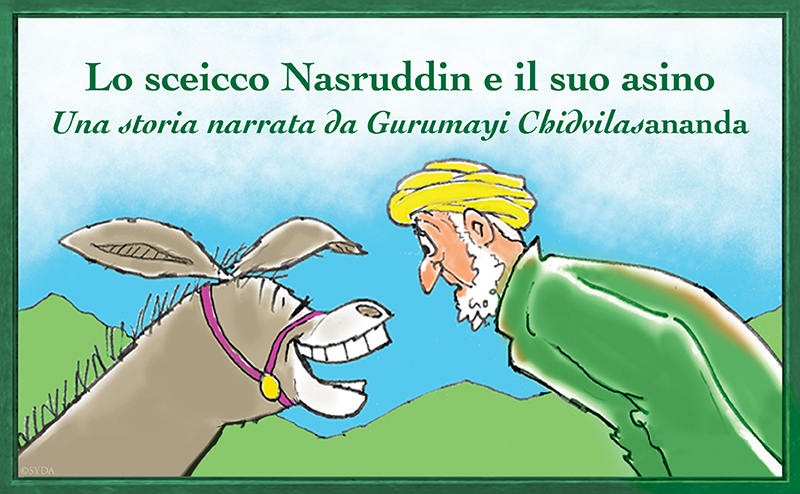
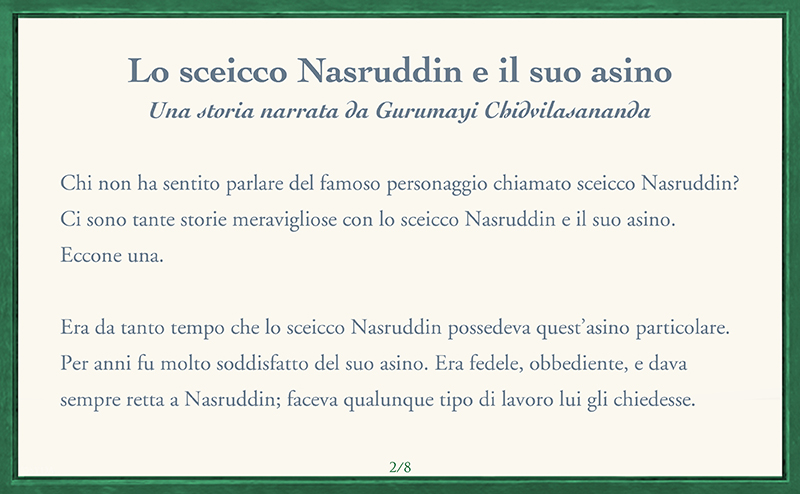
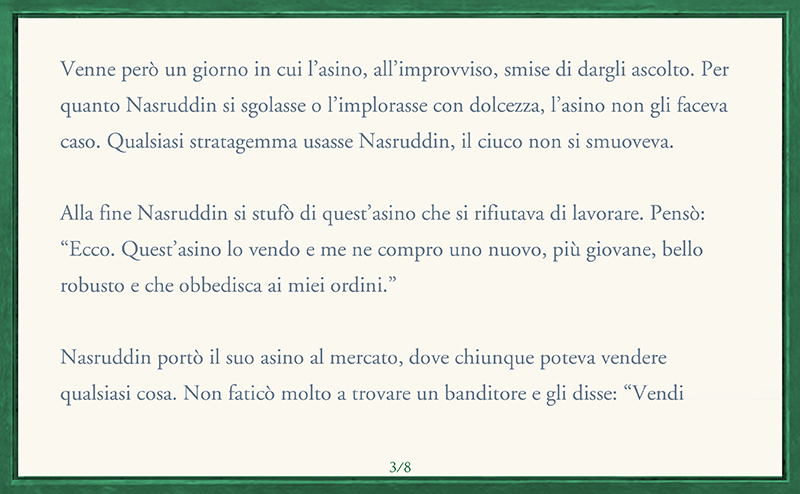
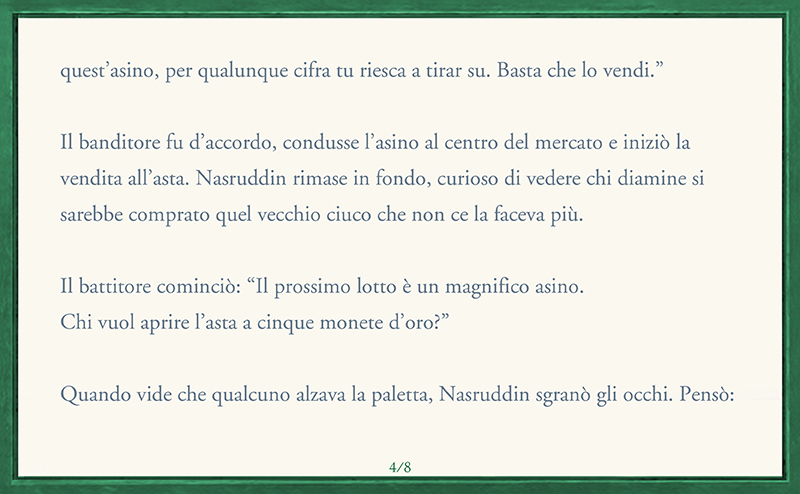
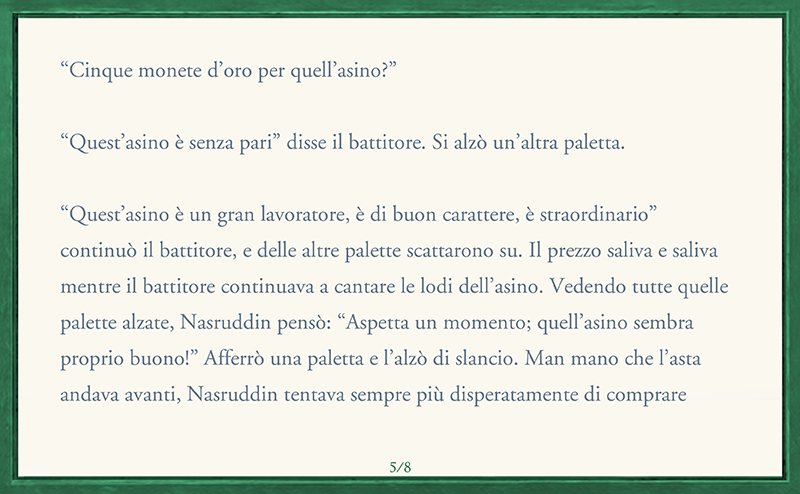
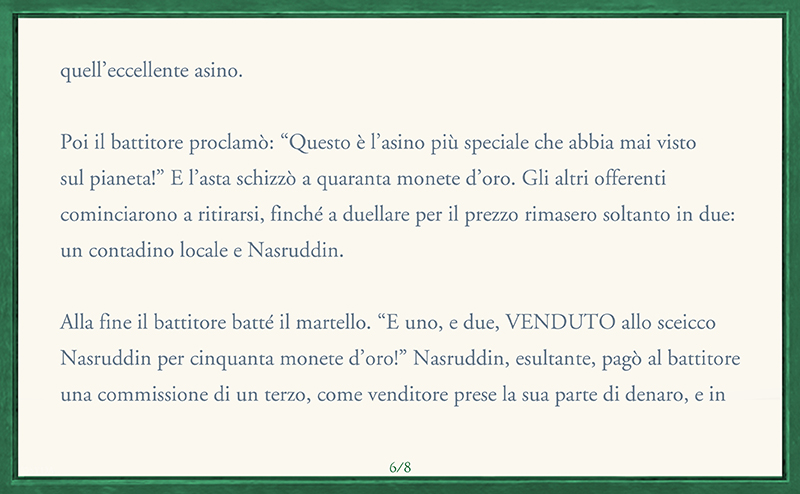
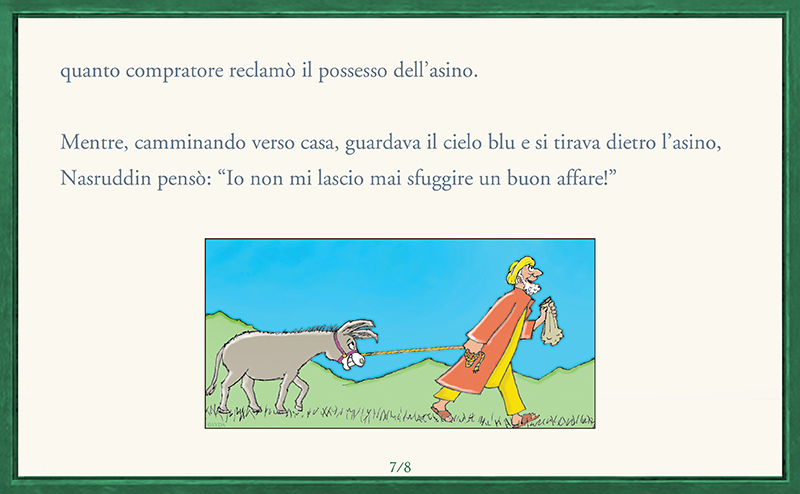
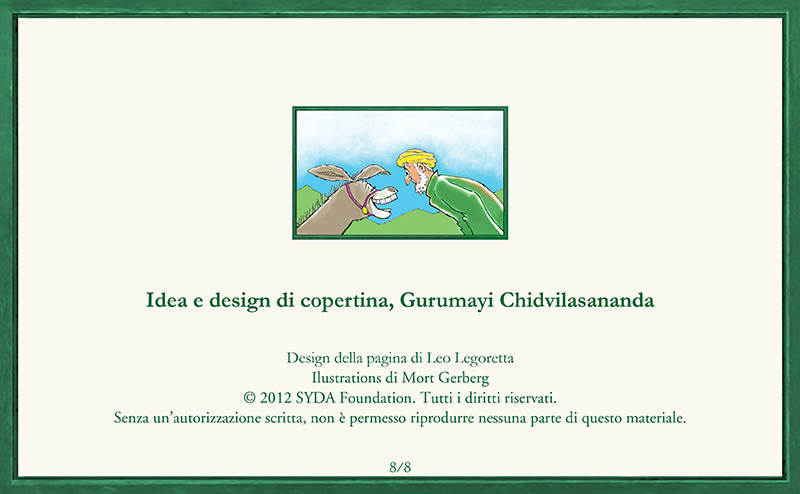
Meanwhile I happened to re-read this story, and my decision became quite clear. I remembered how I had recently worked in a similar role and did not enjoy it. I also remembered that I have other commitments and may not be able to give my best to this role. I knew that this wasn’t the right opportunity for me. At first, when I was recruited with such enthusiasm, I forgot my own experience and was tempted to accept the offer. This story inspired me to believe in my own experience and be truthful to myself.
Melbourne, Australia
I love this story. It reminds me of how much time we spend trying to attain what we already have!
Virginia, USA
I live 300 kilometers away from the nearest Siddha Yoga centre. Reading Gurumayi’s stories and the experiences and shares of devotees online, I feel blessed to be part of the online sangham. It feels so vibrant to be here!
Nasruddin’s story gave me two insights, diametrically opposite.
The first one was to value whatever has been loyal and selfless in serving you as you achieve your day-to-day goals. Do not set it aside in fits of despair. Look within; perhaps the fault lies with you. At times, you need a jeweller to tell you the value of the gem you have.
The second insight was when you decide to part with your attachments, do it with a complete consent of your heart, only after a lot of contemplation. Do not thereafter fall prey to the opinions of the world and get ensnared in them once again. We are so influenced by what the world / community / environment which we live in, thinks about our actions that we tend to look at ourselves only through their prism.
Wellington, India
I was struck by how Nasruddin made a firm decision to sell his donkey, which was no longer meeting his needs, but then became so intoxicated by the empty praise of the auctioneer that he completely lost touch with reality and bought the donkey back. The donkey didn’t change or improve; it was merely the auctioneer’s words, which were aimed at making a profit, that changed.
The story shows me to use discrimination with situations or thoughts that question a strong commitment I have made in my life. It also teaches me to be mindful of the many ways that I can allow myself to be led off the path, both from my own mind and from the influence of those around me.
California, USA
I check the donkey story responses daily and I find that my initial limited perspective and understanding of the story continues to expand. I only saw Nasruddin’s foolishness and the way he let the matrika shakti make him dance. Now I see there can be many other interpretations. Thank you all. It is great to have your satsang in this way.
Nebraska, USA
When I read the story “Sheik Naruddin and His Donkey,” the words "the donkey stopped listening" stood out for me. My understanding is that the donkey represents something that does not serve us anymore.
Nasruddin tried to revive it but could not; so he thought, I will let go of this and try something fresh, more vitalising. But at the marketplace he was overcome with doubts and listened to the "selling" instead of listening to himself. Hence he went home with the same donkey that did not serve him anymore.
with love. Shanghai, China
I love Nasruddin stories and laughed, as I always do, at his odd choices. Then I thought about what the story was teaching me. I realised that there are qualities and truths that I seem to lose touch with in myself, that I “take to market” and try to buy from the outer world. I had to acknowledge how much energy and time and worry—how many gold pieces—I spend buying approval, for example, from those around me; when all the while God dwells within me as me!
Thank you for these wonderful, playful, and instructive stories.
Love, Melbourne, Australia
It is truly amazing to see the different perspectives through the shares. It made me pause and see what my mind was doing as I was reading the shares. I noticed as I read the shares that my mind was going back and forth between right and wrong; it was trying to label the perspective. Then it tried to pause and understand each perspective and then realized that every perspective is unique in itself. I was amazed to see how the mind works: it wants to jump to conclusions. And then after reading all the shares, I wanted to discover my understanding of the story. What does the story hold for me?
Seeing the process that happened with my mind, it came to me that a wavering, an unsteady mind will always get swayed by or influenced by outside things and want to jump to conclusions immediately—just like Nasruddin got swayed listening to the praises of his own donkey. A steady mind will always be able to pause and reflect on various aspects like “Oh! What happened to my loyal donkey? Why did it stop responding all of a sudden? Let me find out.” Or “Yes, the auctioneer is praising the donkey, but I’ve known this donkey for years. It has been very loyal; however it is not serving any purpose to me. Would it be wise to spend money on the same donkey?” Whatever the decision, only a steady mind will be able to pause, reflect, and choose “What should I do in this situation?” I understood the importance of having a steady mind, and the necessity in every situation to pause, reflect, and only then act.
Thank you, Gurumayi, for this story. Thank you for all the shares. Thank you to the website team!
Gurudev Siddha Peeth, Ganeshpuri, India
One of the things I have contemplated quite a bit this year is the importance of knowing which things in our life don’t help us and the great freedom and, ultimately, joy that comes from being willing to let them go. It’s not so much about being negative toward those things but recognizing that they (the situation, job, relationship, activity, or whatever) may in fact be keeping us away from something else that would benefit us far more. We actually pay a price by keeping it in our life. It can be very difficult to walk away from something when other people are talking it up, and we often doubt ourselves when we see somebody else wanting the thing we decided we didn’t want.
Nasruddin forgot what he knew about the donkey and thought he was buying the donkey described. When he gets home, the donkey is still not going to do any work, and Nasruddin is going to be very disappointed. If he had taken the money for the donkey and bought another donkey that would do some work, he would have been much happier—not just in the end but in the near future. The happiness he is getting from purchasing his old worn-out but much-hyped donkey will last for only the trip home.
The same type of deception works in reverse, too. We can know that something is good for us but hear so many people saying negative things about it that we forget its value and end up assimilating those negative comments. We have to pay attention to what we know.
Thank you for giving us these stories to contemplate and for all of the wonderful content on the website this summer. It has been a very joyful experience to be connected in this way.
With much love, Washington, USA
From opposite sides of the country, a fellow Siddha Yoga student and I were sharing our thoughts on the Sheik Nasruddin story by phone, and we discovered that our insights were identical. Sheik Nasruddin’s donkey served his purposes well. That is, until the donkey stopped listening. At that point, it made sense to sell the donkey. But at the market, Nasruddin came under the spell of the auctioneer’s marketing skills and ended up going home with the very same donkey in tow. The donkey’s expression in the last frame suggests he has no more intention of listening now than he did before—and that rope looks a lot like attachment. This story reminds both of us to stand firm against the ego’s hard-selling tactics in our decision to let go of something (such as a limiting tendency or belief) that no longer serves us.
Arizona, USA
I like to think that while Nasruddin is learning to appreciate what he has, the donkey is learning to appreciate what he is. It wasn’t quite the same donkey that Nasruddin took home with him. It was a donkey who once again remembered his own great qualities.
Wisconsin, USA
I love the way Nasruddin stories creep up on me. At first I am thinking, "How absurd!" Then I sit with it. Okay. I only value myself when acknowledged from outside. Through sadhana this is slowly changing. Gratitude to Guru, path, practices, and to myself for persevering.
With love, New South Wales, Australia
This story, like other Nasruddin stories, is funny because he is so easily duped by his own mind. We have been so fortunate to receive the knowledge and practices to strengthen the mind, to make it clear and sound, and to know when it needs to be tuned. For this, I am truly grateful to Gurumayi.
Maryland, USA
From my point of view, the mind buys whatever is for sale in the market, especially when nice words are involved. This is what publicity is all about. A good salesman can make you buy your own old, worn-out donkey! This story made me think about the many things, ideas, trends, and philosophies I’ve bought like Nasuddin did, even if they had no use or value at all. And sometimes, at my own cost! Discernment is required when we go shopping, not only in the mall but in the entire world.
Mexico
It is so interesting to read everyone’s interpretation. My understanding is that we need to use discrimination in assessing value and not fall subject to external values. This teaching seemed in line with the story about the Guru’s cat and Gurumayi’s talk "Be Practical, Be Grateful." On the other hand, I appreciate the importance of valuing what we already have. Today, I realized that I have to value whatever it is I have to offer in life before (on a practical level) I can receive value in exchange. For too long, I was expecting it to work the other way around.
Thank you for all the abundant blessings we are receiving via the website. I continue to be amazed by the infinite love of Guru’s grace and how we are being supported, uplifted, and united in the cradle of that love.
Connecticut, USA
Nasruddin forgot all the original, true reasons for selling the donkey and got so mesmerized by the auctioneer´s words—which apparently were qualities the donkey used to have to the extreme—that he even forgot that it was his own donkey.
Like Nasruddin, when acting on impulse and without discrimination, I have been deceived many times by the constructs (tricks) of advertisers and marketing strategies, which are not always true.
This website is a magnificent global study circle. Thank you, Gurumayi.
Mexico City, Mexico
The more I thought about the story, the more I felt that sometimes we unwittingly play the donkey—why did it suddenly stop listening? When we are the donkey, we can lose sight of our own worth when denigrated by someone else. Then, we are also Sheik Nasruddin, whose belief in the donkey’s worth escalated because of someone else’s opinion, again losing sight of what is of real value. I had a lot of fun imagining the two scenarios that are so familiar in real life, and I laugh out loud at the drawing of the donkey that seems to be reveling in his own bliss. Wait, does the picture depict the scene before or after the sale? A simple story that has many meanings—like life. Thank you, Gurumayi!
Hong Kong
After contemplating this story, I had the insight that the only value something has is the value you give it. Once I understood this, I was drawn inward, and each breath and moment became divine.
Thank you!
New York, USA
One of the things this story illustrates for me is the power of self-deception—Nasruddin convinced himself that he made a good bargain when in fact he was buying something that he himself was selling; he was paying for something he already owned. This tale cautions me to be vigilant and not let my own mind trick me into believing my most ridiculous actions are wise.
Pennsylvania, USA
The story of Sheik Nasruddin made me think about how many times we keep with us things, ideas, or even relationships we don´t need. We do it because we react to what society thinks is important and because we ignore our own wisdom. To keep the things, ideas, or relationships that have completed their cycle in our life makes us lose time, energy, and even money.
Mexico City, Mexico
I am loving our online satsangs! Thank you, Gurumayi-ji, for these stories. It has propelled us to contemplate and share.
Every time I open the Siddha Yoga path website homepage, I am captured by the tangible illustrations. Many thanks to our fellow Siddha Yogi artists.
To me this story exemplifies how our world is made of our beliefs.
While outer situations remain unchanged, we can be unhappy and miserable or be exalted and proud, by believing differently.
Ohio, USA
This story is fun and yet, on a more serious note, it teaches us to use our common sense and sound judgment. If we use these qualities, we can form our own opinions and stand by them regardless of what someone else may be telling us. Thank you.
Russia
Thank you for this splendid story.
Nasruddin easily forgot that his loyal donkey had served him for a long time. Even to the point that he was ready to make a business of his deserving friend.
It’s a human condition, how people treat their loved ones in difficult times.
Luckily, by means of grace, Nasruddin finally found the golden opportunity to take care of his priceless donkey.
Thun, Switzerland
What comes up for me as I read this wonderful, mysterious, and amusing story about Sheik Nasruddin is the profound teaching that has been given to us over and over again as we walk the Siddha Yoga path: The world is as you see it.
With gratitude for your continuing guidance, Gurumayi.
Massachusetts, USA
The story demonstrates for me how we seem only to value what we have inside and our own self-worth when it is acknowledged and approved of by an outside source. Isn’t this interesting?
Toronto, Canada
The donkey was a blessing in Nasruddin’s life.
But perhaps Nasruddin was taking his donkey for granted.
He didn’t truly appreciate the donkey.
At the market, the value of his donkey appreciated before his very eyes.
Nasruddin then recognized the value of his donkey, and he appreciated him.
The story reminded me to appreciate blessings in my life.
Washington, USA
I truly, immensely enjoy when Gurumayi tells stories. Generally, I feel stories speak to the "child" in all of us. For me personally, when the story unfolds, I feel awe and mystery: like I remember feeling as a child. Stories were always fun because even a simple story seems to have a deeper meaning. The fun part is figuring out the other meaning.
Nasruddin and His Donkey is a story about appreciating what you have. When we have something for a long time we may feel "tired of it". Maybe what is tired is not the object but the perception. Sometimes a new or fresh experience changes our perception, and therefore helps us appreciate what we have. Stepping outside the ordinary or normal routine (like Nasruddin taking the donkey to the market), created a fresh perspective. This can also be a metaphor for meditation. When we meditate we can take a step out of our normal functioning and observe things differently. This fresh perspective can sometimes instill a sense of gratitude among other positive benefits.
New York, USA
I’m fascinated by the different interpretations of this wonderful and mysterious story. My wife and I read it late Sunday night and shared our experiences.
I thought that the story was about listening to your inner voice and not being swayed by other people’s opinions.
My wife’s take was that Nasruddin had become mired in negativity from his close association with the donkey over so many years and so he could only see his donkey’s faults. When he took the donkey to the market and he saw how other people valued it he returned to his senses and fell in love with the donkey again—a great message for close friends and partners.
I like my wife’s story better. It’s inspiring that my friends and my partner can help me have a higher vision of the world.
Much love, Vancouver, Canada
This morning when I opened the Siddha Yoga path website I was worried about going back to work and of all my daily activities. Then I looked at the smiling face of the donkey and all of a sudden an inner smile arose inside my heart! He is smiling at our human condition! So thankful for this funny story!
Rome, Italy
I’ve always delighted in this story’s fun portrayal of the bewildering power of the Matrika Shakti to create a world out of nothing, even a world contrary to what I know to be true.
California, USA
After the first story was posted on the Siddha Yoga path website, a visiting sevite in Shree Muktananda Ashram asked Gurumayi, “Will there be Sheik Nasruddin stories?”
Gurumayi said, “Yes!”
Sevites in the SYDA Foundation Website Department

